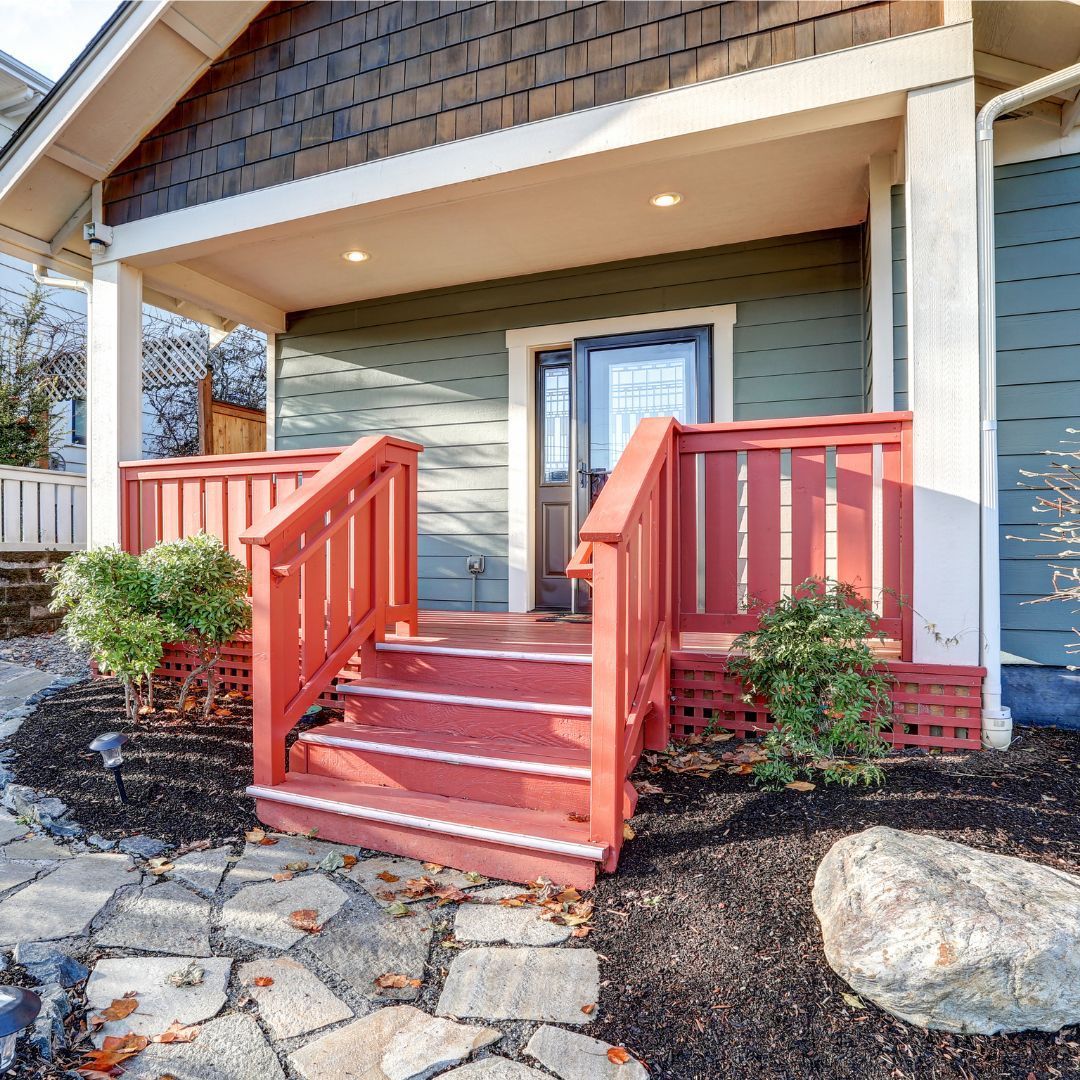How to Find the Right Person to Sell Your House
Your guide to hiring the listing agent who can set you up for success.
Your home is where you’ve lived and loved, where you’ve laughed and cried, where you’ve huddled and snuggled. You’re the pea, your home is the pod. And you’ve been through a lot together.
Now that it’s time to put it on the market, you’re likely experiencing some sadness, plus plenty of anxiety. Because really: How often does your future depend on selling your past? If you’re a little overwhelmed, we don’t blame you.
But there’s also good news: You don’t have to go it alone.
A listing agent has your back when it comes to the financials, like setting a listing price and marketing, staging, and making repairs to your house. He or she can also help you navigate more personal issues, such as your timeline, and what you’re hoping to achieve with the sale.
For all of those reasons, it’s important to find an expert who is right for you and your specific situation, and who can help you get what you want. Here’s how.
Know What a Listing Agent Can Do for You
Before you start interviewing prospective agents, have a clear sense of what you want to get out of the selling process. When so much money is on the table, it’s crucial to know what your goals are, so that you can find an agent who really speaks to them.
Then, it helps to understand what a listing agent does (other than sell your most valuable asset — no big deal).
The listing agent will:
- Work with you to price your home
- Market your home (we’re talking pretty pictures, social media promo, cute staging — the works)
- Negotiate with home buyers
- Usher the home sale through inspection and closing
Now, let’s break all of that down . . .
Pricing your home. This is the BIG question, right? How do I set the price? The short answer is you’ll need to trust your agent to recommend a smart listing price.
So how can you tell whether an agent — a relative stranger to you — is choosing the best price for your home? You need to do two things:
- Know, generally speaking, what your property is worth . Do your own research on the prices of local comps, (but understand the limits of online property sites ). Run your info by your agent for an informed perspective.
- Ask the agent for pricing information on homes he or she has recently sold. Specifically, what the differences were between their listing prices and how much the homes ultimately sold for.
When it comes to the agent’s pricing history, you’re looking for accuracy. Anyone could suggest a high price for your home, knowing it’s what you’d like to hear. But nobody (especially you) wants to have a house languish on the market, or to reduce a price repeatedly.
Marketing your home. The listing agent will also get the word out that your house is on the market, using a combination of old-school (but powerful) marketing techniques — such as direct mail, signage, and open houses — and the modern methods we know and love, like social media. Savvy agents will post pics of your house on Instagram, Facebook, Twitter, and any other platform that can get likes plus the attention of other real estate agents who can bring buyers to the table.
Negotiating with buyers. When offers start pouring in, your agent will negotiate with prospective buyers on not only the sale price but also on what contingencies (aka special circumstances) are attached to the contract. As with any negotiation, there could be some stressful, fraught moments with the buyers. You’ll want an agent who can step up for you, and who has a negotiation style that you’re comfortable with.
Closing the sale. Once you’ve signed a purchase agreement with a buyer (woo-hoo!), your agent will help you navigate the sale’s remaining steps. This includes negotiating home repair requests post inspection and dealing with any last-minute surprises before closing.
The average listing agent does all of the above. A great listing agent does all of the above, while also inspiring your confidence — that they’re getting the best price for you, and that they’re representing you and your home in the best possible light.
So, let’s talk about how to find and hire that kind of agent.
Ask These Questions to Find a Great Listing Agent
Here, time is on your side. Aim to hire a listing agent six to eight weeks — or more — before the day your house is listed on the market (also known as the “go-live date”). You’ll be grateful for the cushion, especially if the agent you ultimately hire recommends that you make repairs or upgrades to your home before it’s listed. (That wouldn’t be unusual.)
To find prospective agents, start with your network. Ask friends, relatives, neighbors, and colleagues for recommendations. Word-of-mouth endorsements, as always, can be priceless.
You can also turn to another trusted friend: the internet. Property websites such as realtor.com® have directories that let you search for agents in your area. These databases can clue you into important details, such as an agent’s years of experience, number of homes sold, and past client reviews.
Three out of four home sellers only contact one candidate before picking their listing agent, according to a NATIONAL ASSOCIATION OF REALTORS ® report. While that may be the norm, it’s smarter to shop around. Interview at least three agents before deciding on the one you want to work with.
During the interviews, ask these questions to help assess whether an agent is the right fit you:
- Do you work as an agent full-time? Like most professions, experience is no guarantee of skill. That said, much of real estate is learned on the job.
- How long have you been in the business? Generally, the more experience an agent has, the more they’re tapped into the local market.
- How many homes have you sold in my neighborhood in the past year? You don’t need to find an agent who specializes only in your community, though that would be ideal. You do want someone who has recently sold at least a few homes in your neighborhood and knows the local and hyper-local inventory.
- What’s the typical price range of homes you sell? Most agents work across multiple price points, but you don’t want an agent who has never sold a home in your range.
- What’s your fee? An agent should be able to articulate their value and explain their commission rate.
- How will you market my home? You don’t want to hire someone who’s just going to stick a For Sale sign in your yard and call it a day. The agent should present a comprehensive marketing plan for your listing — this should include strategies for staging your home, taking professional photographs of your home, promoting the listing on social media, marketing to other brokers, scheduling open houses, etc.
- Will I be working with you directly, or with a team? Some agents lead or work as part of a sales team. The lead listing agent shares client responsibilities with other agents. Where one agent may handle private showings for a listing, another may host open houses. A benefit is that for the same fee, you get many people working for you. But if you want the sole attention of the listing agent, you may want to stick to a one-on-one arrangement.
- Will you provide one-on-one service? Whether you’re working with one agent or a team, ask how responsive they can be to you, your timeline, and your goals.
- How long on average are your listings on market? Your average sold-to-list price? This can help you suss out whether the agent is a solid marketer and negotiator. These are real estate stats that the agent can pull from your local multiple listing service, or MLS.
The bottom-line: It’s in your best interest to pick an agent who understands your goals, fits your personality, and can get your home sold for top dollar. When you meet someone who can offer all of the above, congratulations — you’ve found your listing agent.
First Thing: Know What You’re Signing up For
Now that you know what you’re getting when you find the right listing agent, let’s make sure you know what you’re committing to when you sign that agent’s “representation agreement.”
The most common type of representation agreement is the exclusive right-to-sell agreement — a legally binding contract that states you’re going to use that agent to sell your house. Under this agreement, you’re giving the agent (and the agent’s brokerage) the right to sell the home for a mutually agreed-upon time period and compensation. IOW: You get peace of mind that you have a dedicated agent; the agent gets peace of mind that you’re only using their services. Other common terms include the agent’s duties to you, like marketing, and a dispute resolution plan.
There are other types of representation agreements, where agents don’t have exclusive rights to sell the property — meaning multiple agents can try to sell the home and compete for the commission. However, when agents know a listing is exclusively theirs, they’re fully invested in selling the property (which, again, should also give you peace of mind).
Every contract has an expiration date, but the length of the contract can vary. Some are three-months; others six months. It all depends on what you and the agent agree upon. If the contract expires before your house is sold, you can re-list your home with another agent.
Of course, there’s a chance you sign an exclusive listing agreement but just aren’t satisfied with the job your agent is doing. To protect yourself, make sure the representation agreement has a cancellation or termination clause that lets you void the contract before the expiration date without any financial penalty.
Understand How a Listing Agent Gets Paid
So . . . at the end of the day, how do listing agents get compensated for their work?
Real estate commissions — including the listing agent’s commission — are typically charged as a percentage of the home’s sales price. For example, on a $300,000 house, a 6% commission would cost $18,000. Commissions are negotiable. The commission is usually split between the listing agent and the buyer’s agent as well as their respective brokers.
A caveat: If an agent represents the seller and the buyer, the agent becomes a dual agent and earns both sides of the commission. In dual agency, you may have more room to negotiate the rate — just keep in mind that you’re not being represented exclusively as you are in single agency. You may want to hire an attorney to review documents and help you negotiate.
The listing agent’s commission fee often covers the cost of professional photos, marketing and marketing materials, and any administrative fees charged by the agent’s brokerage.
Also, consider this: Great agents — with their pretty photography, HGTV-worthy staging tricks, and marketing smarts — earn their keep.
So, if you’ve read all of the above, you’ve done your homework to find a great agent. Now you’re ready to sell that house.

HOUSELOGIC
HouseLogic helps consumers make smart, confident decisions about all aspects of home ownership. Made possible by REALTORS®, the site helps owners get the most value and enjoyment from their existing home and helps buyers and sellers make the best deal possible.

















